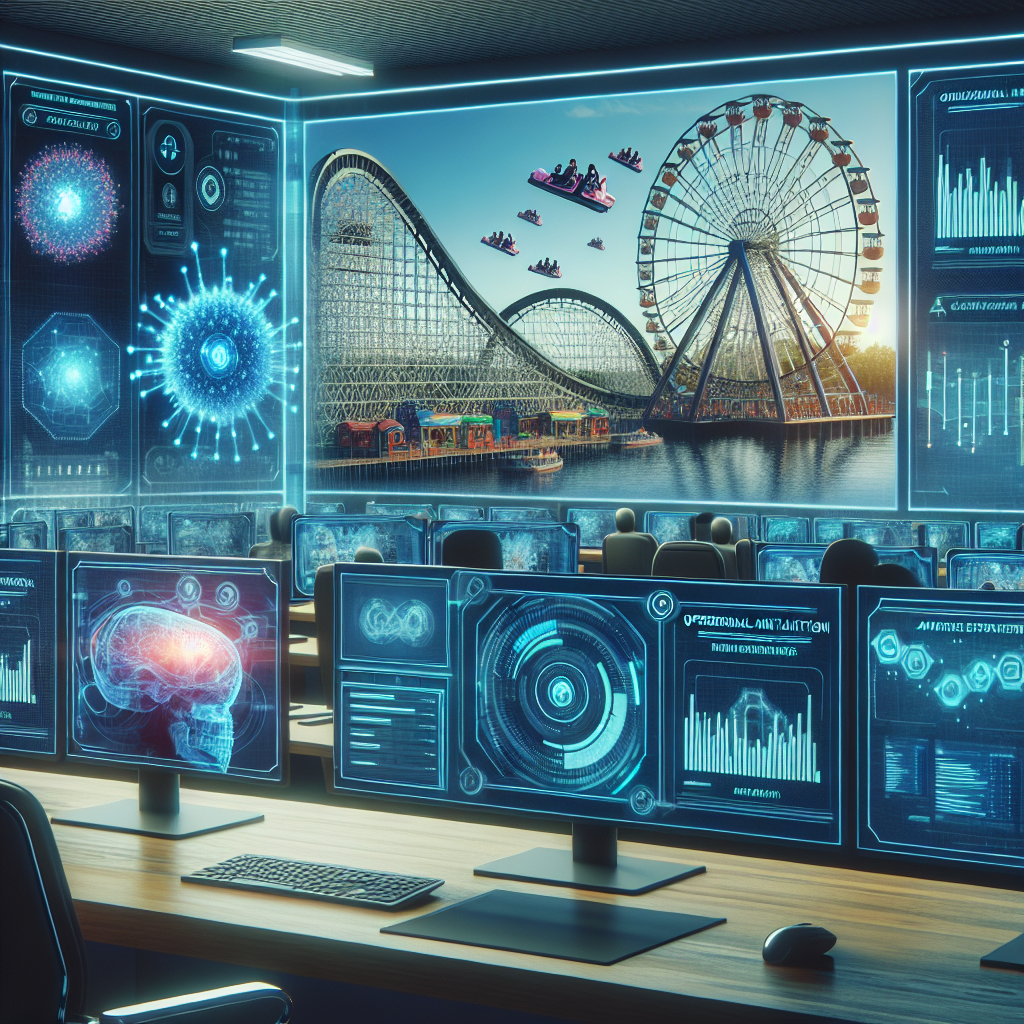Artificial Intelligence (AI) has been revolutionizing industries across the board, and theme park management is no exception. With the rise of technology and the increasing demand for personalized experiences, theme parks are turning to AI to improve operational efficiency, enhance guest experiences, and streamline operations.
AI in theme park management can take many forms, from virtual assistants that help guests navigate the park to predictive analytics that optimize ride wait times. By leveraging AI, theme parks can better understand guest behavior, improve operational workflows, and ultimately increase profitability.
Improving Operational Efficiency with AI
One of the key benefits of AI in theme park management is its ability to improve operational efficiency. AI can help streamline processes, automate tasks, and optimize resource allocation. For example, AI-powered chatbots can assist guests with information about rides, showtimes, and dining options, reducing the workload on park staff.
AI can also be used to predict guest traffic patterns and optimize ride wait times. By analyzing historical data and real-time information, AI algorithms can predict when and where crowds will form, allowing park managers to adjust staffing levels and ride operations accordingly. This not only improves guest satisfaction but also helps reduce wait times and increase throughput.
In addition, AI can help with maintenance and repair tasks by monitoring equipment performance in real-time and predicting when maintenance is needed. This proactive approach can prevent costly downtime and ensure that rides are always in optimal condition.
Enhancing Guest Experiences with AI
Another area where AI can make a significant impact in theme park management is in enhancing guest experiences. AI-powered personalization tools can help create tailored experiences for guests, from personalized recommendations for rides and attractions to customized dining options based on dietary preferences.
For example, AI can analyze guest data, such as past behavior, preferences, and demographics, to recommend personalized itineraries and suggest relevant promotions. This not only improves guest satisfaction but also increases revenue by encouraging guests to spend more time and money in the park.
AI can also be used to create immersive experiences, such as virtual reality (VR) and augmented reality (AR) attractions. These technologies can transport guests to new worlds, enhance storytelling, and create unforgettable memories. By incorporating AI into these experiences, theme parks can create truly unique and engaging attractions that keep guests coming back for more.
Streamlining Operations with AI
AI can also help streamline operations in theme parks by automating routine tasks and optimizing workflows. For example, AI-powered scheduling tools can help managers allocate resources more efficiently, from staffing levels to ride operations. This can reduce labor costs, improve productivity, and ensure that guests have a seamless experience.
AI can also be used to analyze guest feedback and sentiment in real-time, allowing park managers to quickly address any issues or concerns. By monitoring social media, review sites, and guest surveys, AI algorithms can identify trends and patterns, helping park managers make informed decisions that improve guest satisfaction.
Additionally, AI can help with inventory management by predicting demand for food, merchandise, and other products. By analyzing historical data and external factors, such as weather and events, AI algorithms can optimize inventory levels, reduce waste, and ensure that popular items are always in stock.
FAQs
Q: What are some examples of AI applications in theme park management?
A: Some examples of AI applications in theme park management include virtual assistants, predictive analytics for ride wait times, personalized recommendations for guests, and maintenance monitoring for rides and equipment.
Q: How can AI improve operational efficiency in theme parks?
A: AI can improve operational efficiency in theme parks by streamlining processes, automating tasks, optimizing resource allocation, and predicting guest traffic patterns. This can help reduce wait times, increase throughput, prevent downtime, and improve guest satisfaction.
Q: How can AI enhance guest experiences in theme parks?
A: AI can enhance guest experiences in theme parks by creating personalized itineraries, recommending relevant promotions, and offering immersive attractions, such as VR and AR experiences. This can increase guest satisfaction, encourage spending, and create unforgettable memories.
Q: How can AI streamline operations in theme parks?
A: AI can streamline operations in theme parks by automating routine tasks, optimizing workflows, analyzing guest feedback, and predicting demand for inventory. This can reduce labor costs, improve productivity, address issues quickly, and ensure that popular items are always in stock.
In conclusion, AI is transforming the theme park industry by improving operational efficiency, enhancing guest experiences, and streamlining operations. By leveraging AI technologies, theme parks can stay ahead of the competition, deliver personalized experiences, and create unforgettable memories for guests. As AI continues to evolve, the possibilities for innovation in theme park management are endless.

